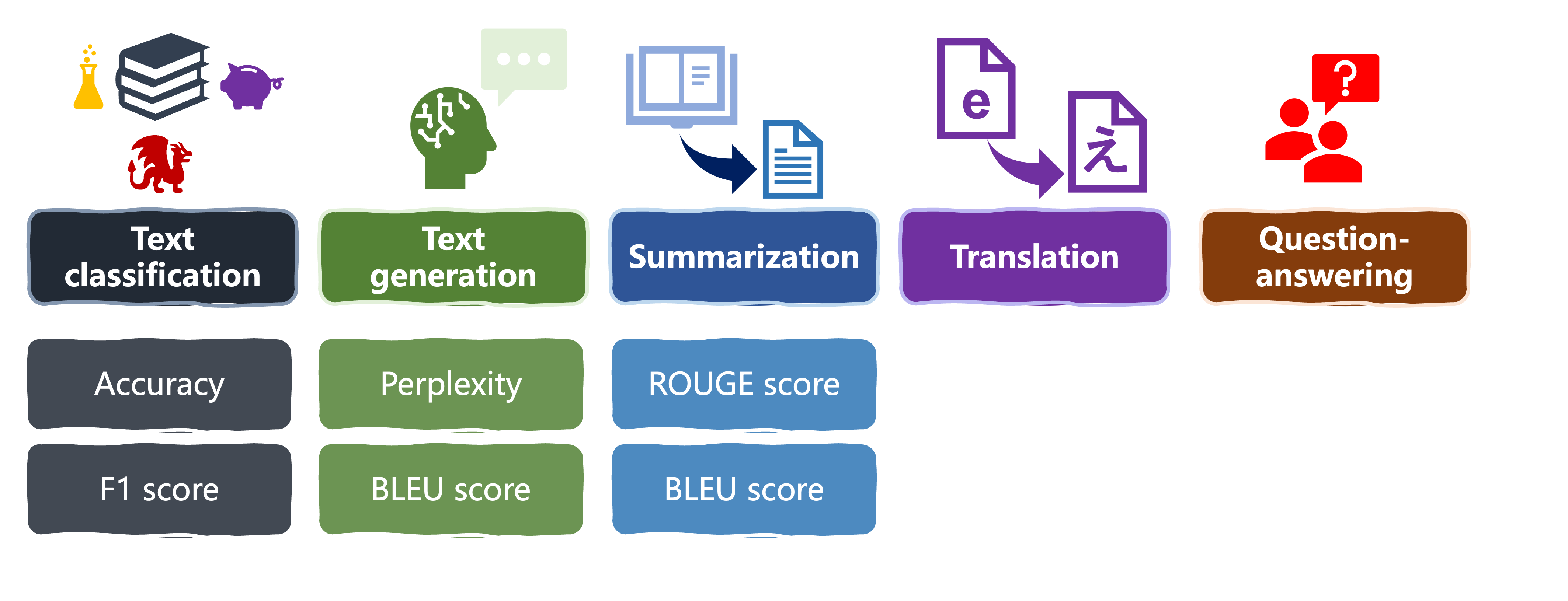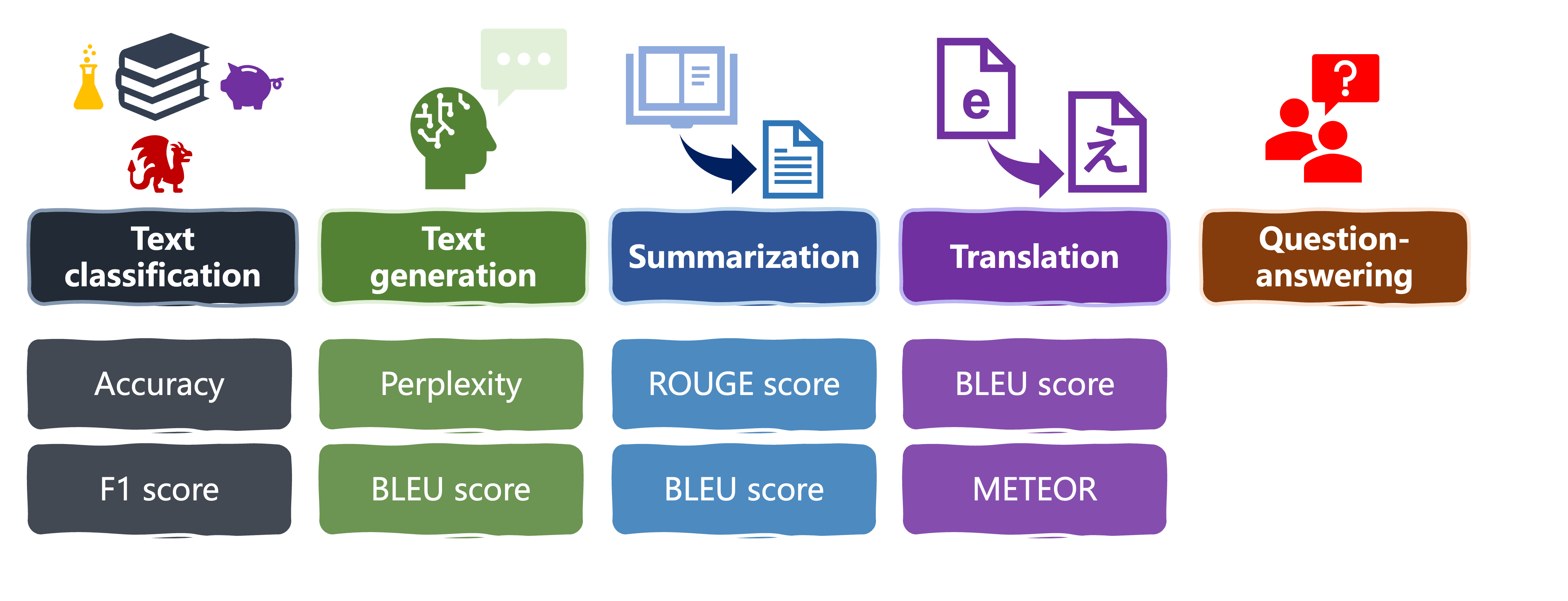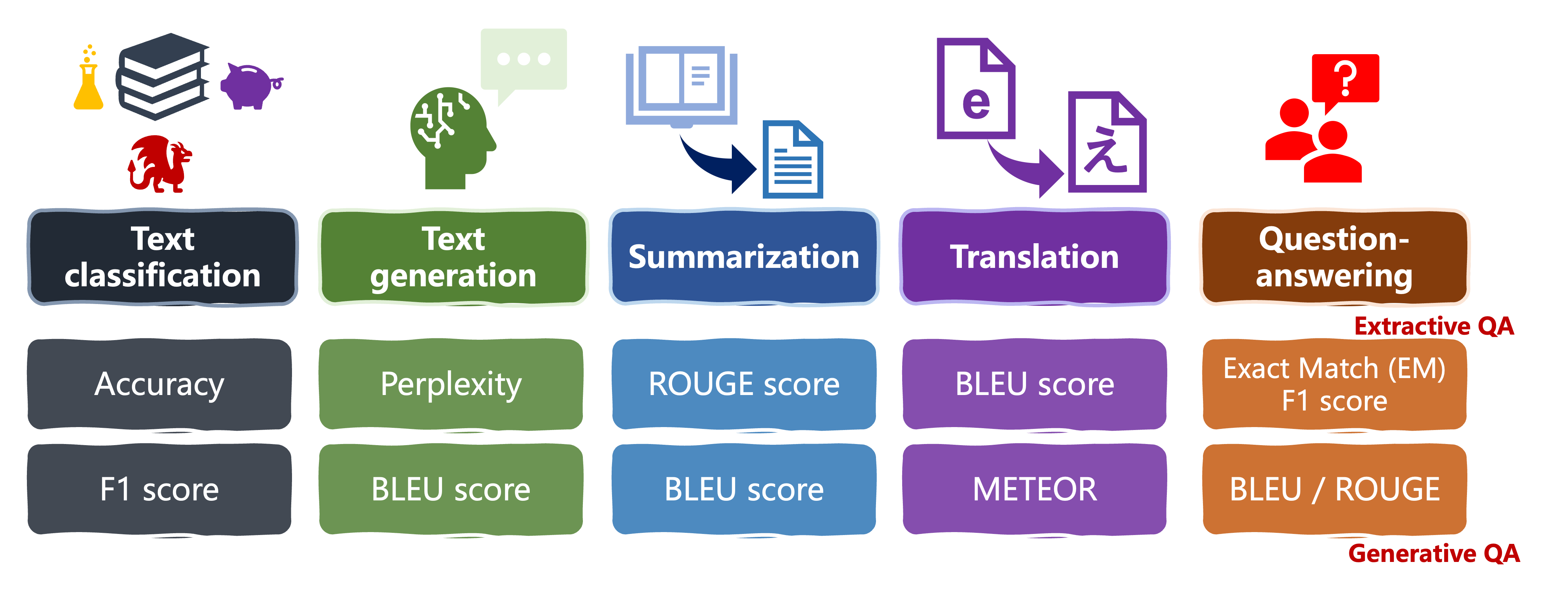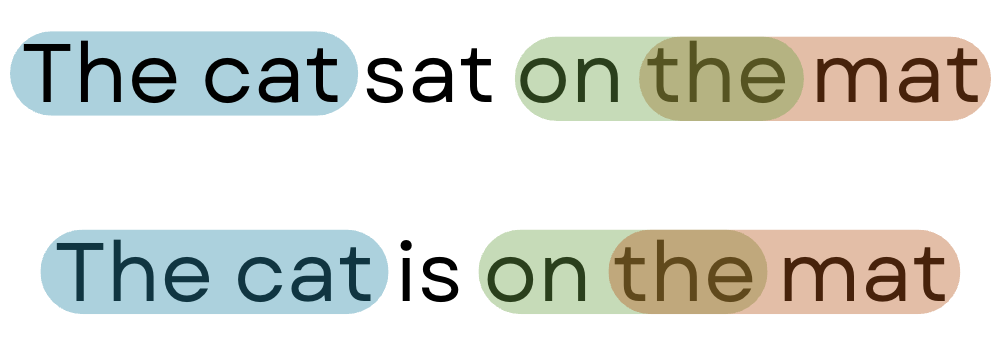Metrics for language tasks: ROUGE, METEOR, EM
Introduction to LLMs in Python

Jasmin Ludolf
Senior Data Science Content Developer, DataCamp
LLM tasks and metrics

LLM tasks and metrics

LLM tasks and metrics

ROUGE
- ROUGE: similarity between generated a summary and reference summaries
- Looks at n-grams and overlapping
predictions:LLM outputsreferences: human-provided summaries

ROUGE
rouge = evaluate.load("rouge")
predictions = ["""as we learn more about the frequency and size distribution of
exoplanets, we are discovering that terrestrial planets are exceedingly common."""]
references = ["""The more we learn about the frequency and size distribution of
exoplanets, the more confident we are that they are exceedingly common."""]
ROUGE scores:
rouge1: unigram overlaprouge2: bigram overlaprougeL: long overlapping subsequences
ROUGE outputs
ROUGE scores:
rouge1: unigram overlaprouge2: bigram overlaprougeL: long overlapping subsequences
- Scores between 0-1: higher score indicates higher similarity
results = rouge.compute(predictions=predictions,
references=references)
print(results)
{'rouge1': 0.7441860465116279,
'rouge2': 0.4878048780487805,
'rougeL': 0.6976744186046512,
'rougeLsum': 0.6976744186046512}
METEOR
- METEOR: more linguistic features like word variations, similar meanings, and word order
bleu = evaluate.load("bleu") meteor = evaluate.load("meteor")prediction = ["He thought it right and necessary to become a knight-errant, roaming the world in armor, seeking adventures and practicing the deeds he had read about in chivalric tales."] reference = ["He believed it was proper and essential to transform into a knight-errant, traveling the world in armor, pursuing adventures, and enacting the heroic deeds he had encountered in tales of chivalry."]
METEOR
results_bleu = bleu.compute(predictions=pred, references=ref)
results_meteor = meteor.compute(predictions=pred, references=ref)
print("Bleu: ", results_bleu['bleu'])
print("Meteor: ", results_meteor['meteor'])
Bleu: 0.19088841781992524
Meteor: 0.5350702240481536
0-1score: higher is better
Question and answering

Exact Match (EM)
- Exact Match (EM): 1 if an LLM's output exactly matches its reference answer
- Normally used in conjunction with F1 score
from evaluate import load
em_metric = load("exact_match")
exact_match = evaluate.load("exact_match")
predictions = ["The cat sat on the mat.",
"Theaters are great.",
"Like comparing oranges and apples."]
references = ["The cat sat on the mat?",
"Theaters are great.",
"Like comparing apples and oranges."]
results = exact_match.compute(
references=references, predictions=predictions)
print(results)
{'exact_match': 0.3333333333333333}
Let's practice!
Introduction to LLMs in Python

